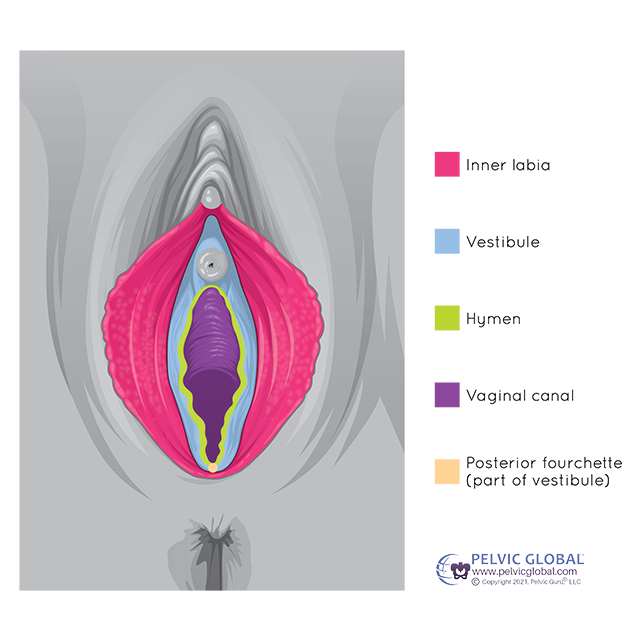The vulva is the external part of the genitals.

The vulva is made up of the outer labia, inner labia, and vestibule. Also shown from the top is the pubic bone/mons pubis, clitoral hood, clitoris, urethra, vaginal opening, perineum, and anus.
There can be dermatological considerations that can effect the vulva like vestibulodynia, vulvar cancer, lichen sclerosis, cysts, and other conditions that possibly could contribute to pelvic floor dysfunctions.
Tips on how to care for the vulva and to help decrease irritation:
- Wipe front to back after bowel movements.
- Don’t use soap on the inner parts. Soap can irritate the parts of the vulva that don’t grow hair. Use your finger tips to wash. Avoid loofas or washcloths and any vigorous cleansing of the area.
- Avoid bubble baths or scented bath oils. These can cause irritation to the vulvar tissue.
- Wear cotton underwear during the day and try sleeping without underwear at night.
- Wear loose fitting clothes. Some people find wearing skirts and loose clothing without underwear can help relieve symptoms.
- Use unscented laundry detergent with no additives and avoid fabric softener.
- Avoid vaginal douching. There are no confirmed health benefits and it is more likely that it will upset the normal vaginal flora and could cause infections. Vaginal douching has also been associated with an increased risk of pelvic inflammatory disease, endometritis, and sexually transmitted infections.
#pelvicwellnessaz #pelvicpain #pelvicfloortherapy #pelvicpt #vulvahealth #postpartum #pregnancy #menopause #perimenopause #phoenix #scottsdale #paradisevalley
All information is for educational purposes and not medical advice. Images and information used with permission from Pelvic Guru, LLC
